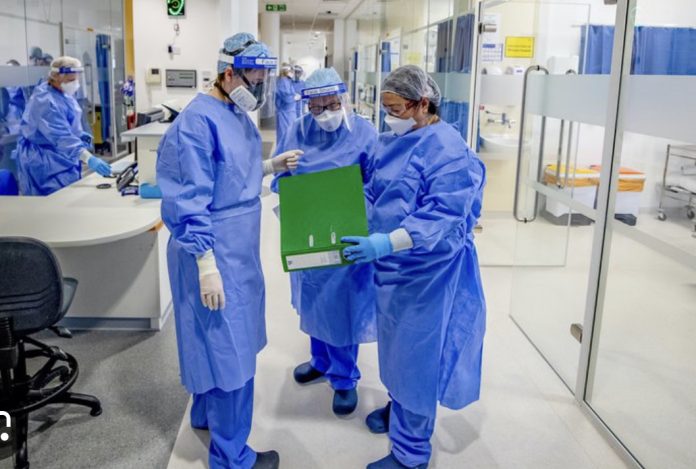A report out this morning has found that 135 contracts given out during the COVID pandemic could carry a high risk of corruption.
The contracts represent a staggering £15.3 billion of public funds—nearly a third of all pandemic procurement by value. To put this into perspective, that figure is almost equivalent to the entire annual Home Office budget.
The report Behind the Masks; Corruption red flags in COVID-19 public procurement showed Whitehall departments award almost £4.1bn to suppliers with political connections to the party of government at the time.
Many of these went through the infamous ‘VIP’ and ‘high priority lanes’ for PPE and testing, referred by MPs and ministers from the party of government for fast-track treatment – a substantial proportion of which were not subject to adequate due diligence checks.’
Both the systemic bias in triaging suppliers and the blanket use of non-competitive procurement – itself worth over £30 billion in total – were unique to the UK and not found elsewhere in Europe.
These procurement failures had real, damaging consequences with billions of pounds of public money wasted.
The National Audit Office found that the Department for Health wrote off a total of £15bn on unused personal protective equipment (PPE), COVID tests and vaccines.
This includes at least £1 billion worth of PPE, bought through the now infamous VIP lane, that were deemed unfit for use.
At the same time, frontline workers were regularly left to deal with shortages, sometimes resorting to makeshift protective gear like bin bags.
The new Government’s recent announcement of a COVID corruption commissioner, charged with recovering the billions of pounds of taxpayer’s money that was lost to waste, fraud and flawed contracts during the pandemic, is a welcome step says the report
It means we might finally be able to recoup lost public funds and seek accountability for those who broke the law.
The research found those well documented cases of questionable processes are not isolated examples. These findings show a widespread and often unjustifiable suspension of procurement checks and safeguards, costing billions to the public purse, and eroding trust in political institutions.
The authors of the report are calling on the government to take action.
First and foremost, we need greater transparency over how public money is spent. Contracts are scattered, sometimes duplicated, across multiple government portals, with unacceptable delays in publishing key information. That fact that at least 141 high-value contracts worth a total of £5 billion were published a year after their award – far beyond the 30-day legal requirement – is indefensible.
Taxpayer money should be traceable. This starts with deploying technology to obtain better data, prompt disclosure, and modernising our system to hold non-compliant public bodies accountable.
The government’s primary role should be to protect the public and the public purse. To do this we need to see a strengthening of institutional safeguards against impropriety, providing greater openness about attempts to secure public contracts and more robust measures to hold to account those engaging in misconduct. The cronyism we saw with the VIP lane that led to £1.7 billion handed out to politically connected suppliers without competition should not be repeated.
During his first days in office, Prime Minister Kier Starmer vowed to ‘restore confidence in government’, saying that ‘the fight for trust is the battle that defines our political era’. To do this the Prime Minister needs to introduce bold reforms.
This includes properly regulating ministerial conduct through an independent statutory body with real enforcement powers. Following the Law Commission’s authoritative recommendation to introduce a new criminal offense for corruption in public office would also be an important step to prevent future crises from being exploited. As would the introduction of a long-overdue comprehensive lobbying register alongside enhanced departmental disclosures to enable public scrutiny of those trying to influence the award of public contracts.
Unfortunately, COVID-19 procurement has become synonymous with corruption, damaging the UK’s reputation as a beacon of good governance, costing the taxpayer tens of billions of pounds and putting lives at risk.
Our research has made clear that if the Prime Minister is to succeed in delivering on his vow there must be accountability for these previous failures and current safeguards against impropriety in public office need strengthening.
Given the amount of public money and trust at stake, delivering these reforms is a worthwhile investment for a government looking to ensure value for money when faced with such strict spending rules.







